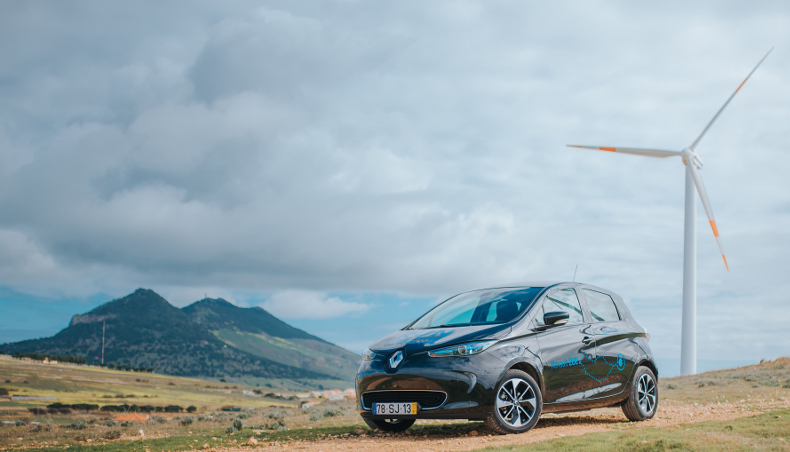
Will we soon be able to live in complete energy self-sufficiency on an island? The electric revolution is not just about transport modes; it impacts our ecosystems and changes our everyday life. Groupe Renault and Empressa de Electricidade da Madeira (EEM), and the Regional Government of Madeira, have joined forces to launch the first smart electric ecosystem on the island of Porto Santo in the Madeira Archipelago in Portugal. Eric Feunteun, Electric Vehicles and New Business Program Director at Groupe Renault, filled us in on the subject.
Can you tell us more about the “Smart Island” project that Groupe Renault is involved in on Porto Santo?

Eric Feunteun, Electric Vehicles and New Business Program Director at Groupe Renault.
The scale of the project is unprecedented! Groupe Renault has, with EEM, an electricity producer and supplier, created the first “Smart Island” with a view to supporting the energy transition of Porto Santo towards the development of renewable, solar and wind, energy sources. The aim is to attain 80% non-carbon energy and mobility on the island in the very near future. To that end, the teams have been working since the start of the year on rolling out smart charging solutions and stationary energy storage with “second life” batteries from Groupe Renault electric vehicles.
These solutions are accompanied by an increase in the number of electric vehicles on the island, to make it even cleaner. For the project, Groupe Renault has teamed up with partners including The Mobility House and Bouygues Energies et Services.
As part of the project, what are Groupe Renault’s objectives and commitment on smart mobility?
Through a real-life achievement, we are confirming are commitment to the circular economy with the creation of a smart electric ecosystem in which electric vehicles play a major positive role. Electric vehicles today play a key role in fostering the development of renewable energies in electricity grids. They are a competitive solution for storing electricity and thereby contributing to the energy transition, even looking beyond mobility.
Groupe Renault and EEM will be installing 40 connected stations on the island. The stations will smart charge electric vehicles, i.e. activate charging when grid supply exceeds demand. We will also be implementing two stationary storage systems with second-life batteries from Kangoo and ZOE. Some of these batteries will come from vehicles from the island of Madeira. Reusing them locally will shrink the carbon footprint. In the following phase, dual-direction smart charging will enable us to use the battery from two ZOE prototypes to store and supply energy in line with the needs of the grid.
This is a crucial project for Groupe Renault, reflecting the key role played by electric vehicles in the energy management of a global ecosystem connected to other services. The promotion of these services will make electric vehicles even more affordable as it optimizes their complete cost.
Why is an island like Porto Santo getting involved in this kind of project?
Porto Santo is looking to increase its renewable energy production. Groupe Renault’s solutions enable the island to store and regulate the fluctuating supply of energy produced by solar and wind farms.
It is also an opportunity to develop a modern and zero-emission mobility offering.
The project was entrusted to our group because as the European pioneer and leader in electric vehicles we have several years of expertise in the implementation of the electric vehicle ecosystem.
What horizons does this achievement open up?
This project constitutes an initial phase. Our aim is to build a model that can be carried over to other islands, eco-districts and cities, while consistently striving to achieve large-scale rollout of electric mobility solutions that are affordable for all. We are also seeking to promote these solutions with all energy providers such as EEM as solutions that in certain ecosystems can serve to attain up to 100% of renewable energy production and energy self-sufficiency.
